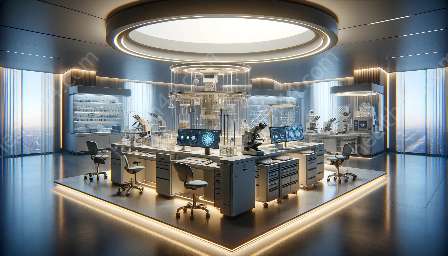High-Performance Liquid Chromatography (HPLC) is a powerful analytical technique widely used in laboratory equipment and medical devices & equipment for separating, identifying, and quantifying components in a mixture. This article provides an in-depth exploration of HPLC, covering its principles, applications, and compatibility with laboratory and medical equipment.
Understanding HPLC
HPLC is a chromatographic technique that involves the separation of a mixture into its individual components, followed by their identification and quantification. It is based on the principle of liquid chromatography, where the sample is dissolved in a liquid mobile phase and passed through a stationary phase, leading to the separation of the components based on their differential interactions with the stationary phase.
Principles of HPLC
The fundamental principles of HPLC involve the use of a high-pressure, highly efficient pump to deliver the mobile phase at a constant flow rate. The sample is injected into the mobile phase stream, which is then passed through the stationary phase in a chromatographic column. The components of the sample interact differently with the stationary phase, leading to their separation based on their affinity for the stationary phase.
Applications of HPLC in Laboratory Equipment
HPLC has a wide range of applications in laboratory equipment, including pharmaceutical analysis, environmental monitoring, food and beverage analysis, and forensic science. In pharmaceutical analysis, HPLC is used for drug quantification, impurity analysis, and drug formulation studies. In environmental monitoring, it is employed for the detection of pollutants and contaminants. Moreover, HPLC plays a crucial role in quality control and assurance in the food and beverage industry.
Advancements in HPLC Technology
Recent advancements in HPLC technology have led to the development of high-resolution columns, improved detection systems, and enhanced automation, thereby increasing the efficiency and accuracy of HPLC analysis. Furthermore, the integration of HPLC with mass spectrometry has expanded its capabilities, enabling the identification of complex mixtures with high sensitivity and specificity.
Compatibility with Medical Devices & Equipment
When it comes to medical devices & equipment, HPLC is used for drug analysis, therapeutic drug monitoring, clinical diagnostics, and research in pharmacokinetics and pharmacodynamics. It is a vital tool in pharmaceutical research and development, ensuring the quality and safety of medications and medical devices through rigorous analytical testing.
The Future of HPLC
As technology continues to advance, the future of HPLC holds promise for further improvements in performance, sensitivity, and speed. The integration of artificial intelligence and machine learning algorithms with HPLC systems is anticipated to enhance data analysis and decision-making processes in laboratory and medical settings.


